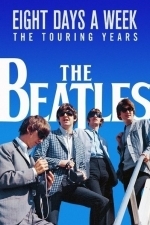
Daniel Tiger's Grr-ific Feelings
Education and Games
App
**2015 Parents' Choice - Gold Award** **Common Sense Media - 50 Apps All Kids Should Play at Least...
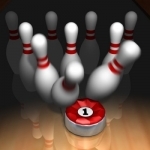
10 Pin Shuffle Pro Bowling
Games and Entertainment
App
10 Pin Shuffle Pro contains three great games in one, played in a realistic 3D environment! One of...
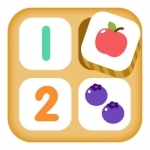
Todo Number Matrix: Brain teasers, logic puzzles, and mathematical reasoning for kids
Education and Games
App
4.5 stars! "Todo Number Matrix is a unique math app that does a great job targeting a wide audience...

NASCAR RACEVIEW MOBILE
Sports and Games
App
Free Features: - Live Race: Enjoy 5 free minutes of the fully interactive, 3d virtual video of the...
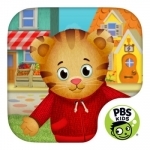
Explore Daniel Tiger's Neighborhood
Education and Entertainment
App
**2016 Parents' Choice - Gold Award** "The app is a charming and effective way to teach a wide...

Sweet Home Stories (Full)
Education and Games
App
Wake up and get ready! There are lots of things to do in Sweet Home Stories! A fun and safe...

Monkey Junior: kids learn to read English, Spanish
Education
App
Monkey Junior is currently #1 popular learn to read program with millions of happy learners and...

Daily Shopping Stories (Full)
Education and Games
App
Welcome to Daily Shopping Stories, the most exciting, fun-filled animated shopping center ever! Buy...
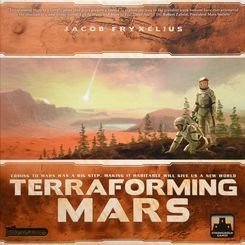
Terraforming Mars
Tabletop Game
In the 2400s, mankind begins to terraform the planet Mars. Giant corporations, sponsored by the...
Boardgame TerraformThis MeeplesChoice
Bob Mann (459 KP) rated The Beatles: Eight Days A Week - The Touring Years (2016) in Movies
Sep 29, 2021
Ron Howard’s film focuses on “the touring years” which as depicted were truly manic, spanning from 1963 to 1966 before then skipping forward to 1969 for their final rooftop concert. This was in a time when airline travel was not the more comfortable and smoke-free environment it is today, so these worldwide trips much have been seriously grueling, even without the adoration that reached dangerous proportions when they reached their destinations.
Howard has clearly had his research team scour the world for archive clips since – whilst sensitively skipping some of the more ‘commonly seen’ materials, like the “jewelry shaking” clip – the film shows concert action I certainly had never seen before.
The film is also nicely interlaced with celebrity cameos recalling their linkage to the Fab Four’s performances (often moving, like Whoopi Goldberg’s) and the group’s “legacy” effect on modern-day art (in Richard Curtis’s case rather less convincing). One of the most striking of these is that of Sigourney Weaver recounting her attendance as a pre-teen at the Beatle’s Rose Bowl performance in LA. There, in the newsreel footage of adoring fans, is the unmistakable face of the ‘before she was famous’ actress: at least I hope it really was her (as the clip’s timing implied) and not a lookalike, since that would be really disappointing!
Also featuring – although not enough for my liking – are Paul McCartney and Ringo Starr, recounting their feelings about the events and what happened behind the closed doors of hotel rooms or – most notably – a meat truck.
What shines through is the honesty and intelligence of Lennon and McCartney, typified by the idiotic questioning of journalists, some of who had done so little homework they didn’t even know there wasn’t a Beatle called Eric! Some of the group’s off the cuff responses were priceless: “What is the secret of your success?” asks one journo. “We don’t know” quips John. “If we knew we’d form another group and be managers.”
While the film has enormous energy in its first two thirds, it rather runs out of momentum in its final reel…. a bit like the Beatles did in fact. It also has elements of gimmickry like the smoke rising from photo cigarettes which gets a tad tiresome after the tenth occurrence.
But this is a very watchable and enjoyable rock down memory lane for 50-somethings and for any fans old and young of the Fab Four’s music. Highly Recommended. Note that the documentary itself is about 90 minutes in length, with another 30 minutes of live concert music tagged onto the end post-titles (which for travel reasons I was unfortunately unable to stay for so can’t comment on).
